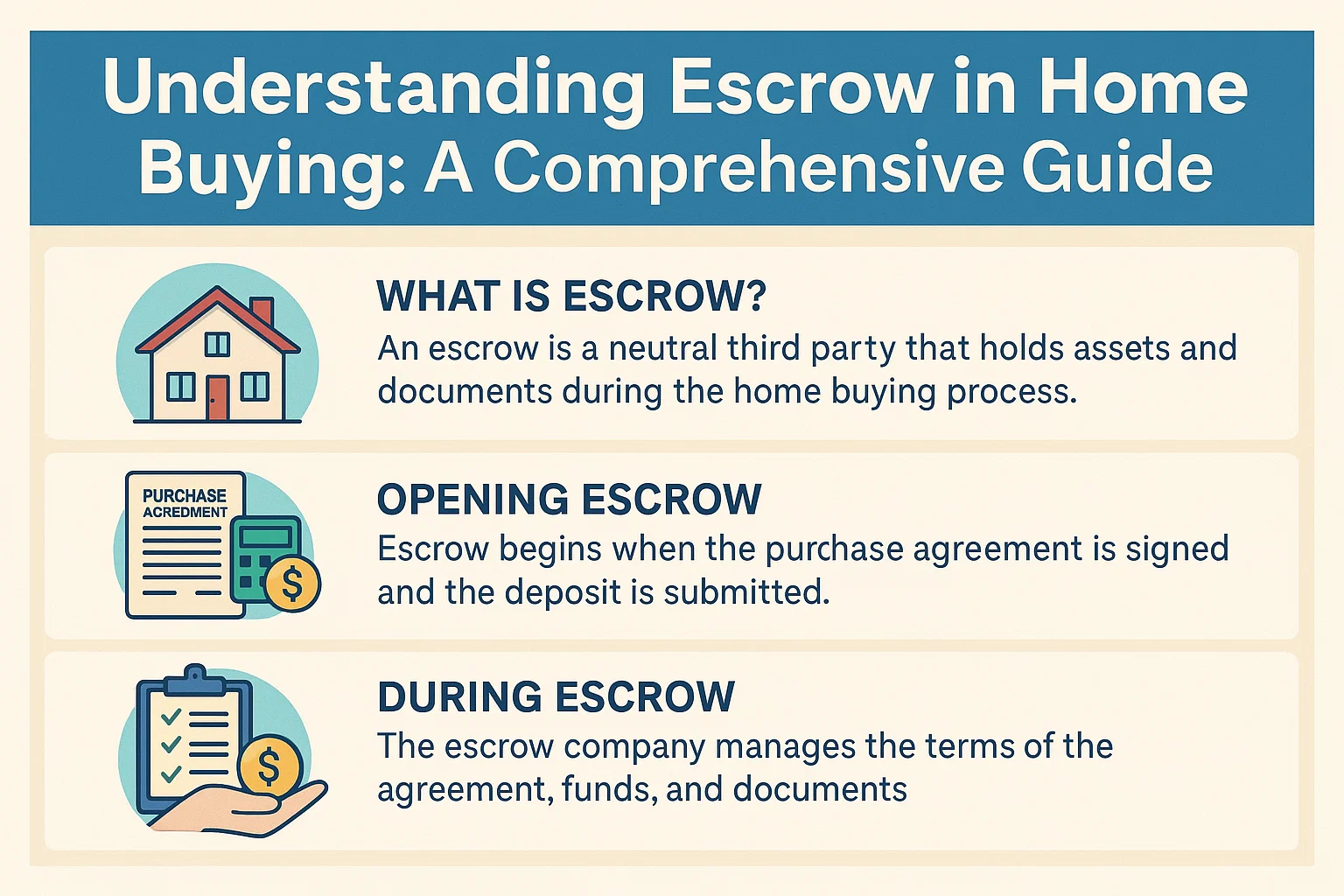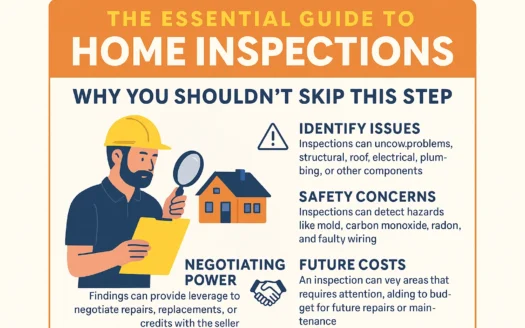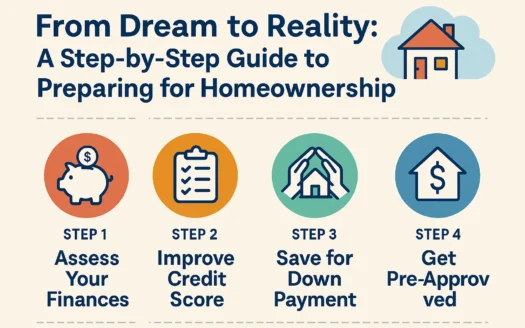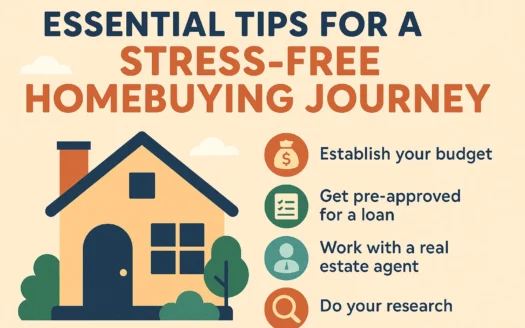Understanding Escrow in Home Buying: A Comprehensive Guide
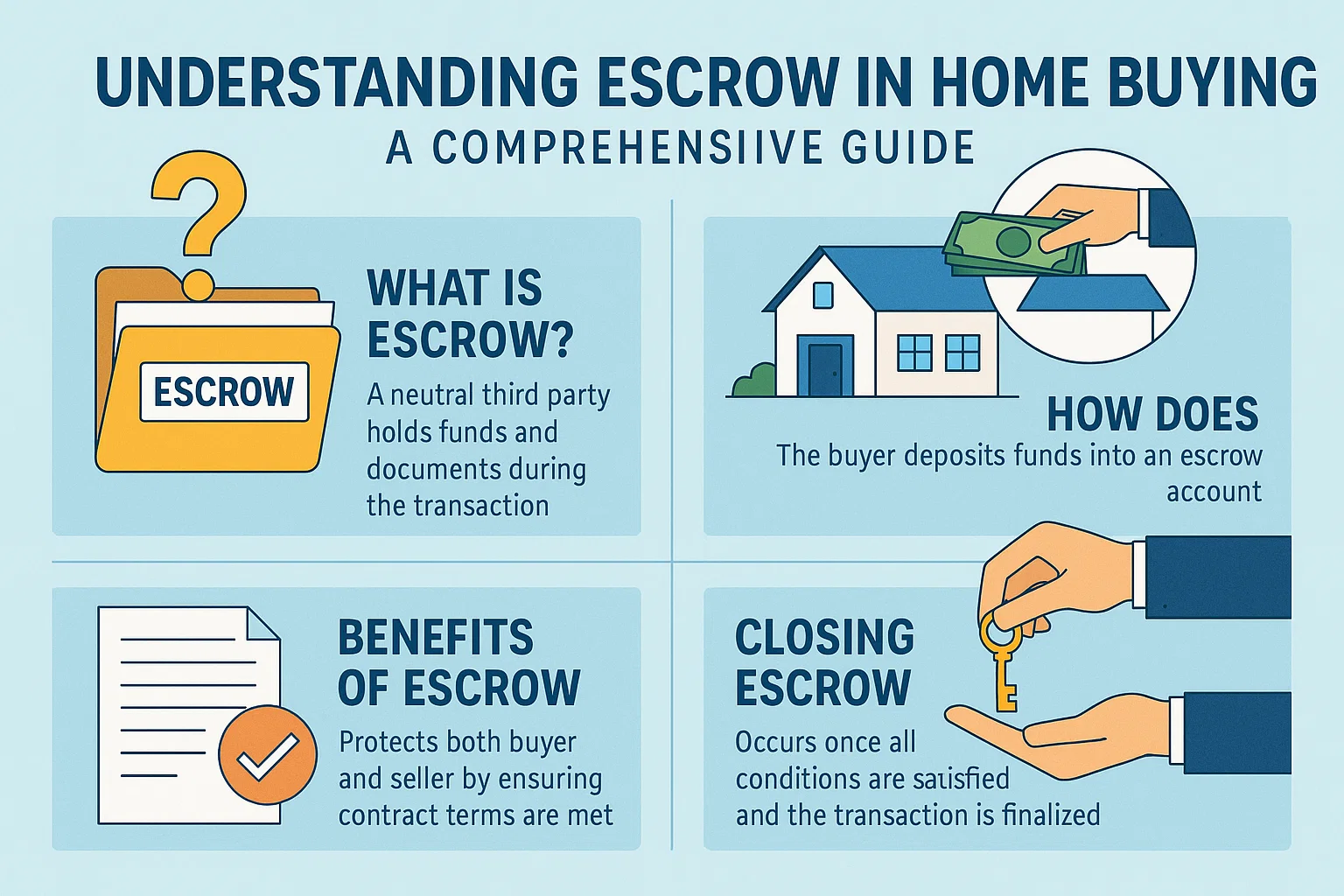
Understanding Escrow in Home Buying: A Comprehensive Guide
What Is Escrow?
Escrow refers to funds set aside during a home purchase to protect both buyers and sellers. This financial arrangement is managed by a neutral third party and plays a critical role at multiple stages of the transaction.
Earnest Money and Escrow
When making an offer on a home, buyers typically provide earnest money to demonstrate commitment. This deposit is held in escrow until the sale progresses. Key points include:
- Buyer Protection: Once the offer is accepted, the seller must pause active listings and cannot entertain other offers.
- Contingencies: Contracts often include clauses (e.g., inspection failures) allowing buyers to withdraw without penalties.
- Seller Protection: If a buyer backs out without a valid reason, the seller retains the earnest money.
Closing of Escrow
The closing of escrow finalizes the home purchase. This occurs when:
- All funds are disbursed correctly.
- Legal documents are signed and recorded.
- All contractual conditions are met.
Mortgage Escrow Accounts
After purchasing a home, an escrow account may be used to manage recurring expenses like property taxes and insurance. Here’s how it works:
- Monthly Contributions: Lenders divide annual tax and insurance costs into smaller monthly payments.
- Example: If annual taxes are $2,000 and insurance is $1,000, you’ll pay $250 monthly into escrow.
- Automatic Payments: The lender uses escrow funds to pay bills when they’re due, eliminating lump-sum stress.
Annual Escrow Re-Evaluation
Escrow accounts are reviewed yearly due to potential changes in:
- Property tax rates.
- Home insurance premiums.
- Home value fluctuations.
Even with a fixed-rate mortgage, your monthly payment may adjust slightly based on escrow requirements. Lenders will notify you of any changes in advance.
